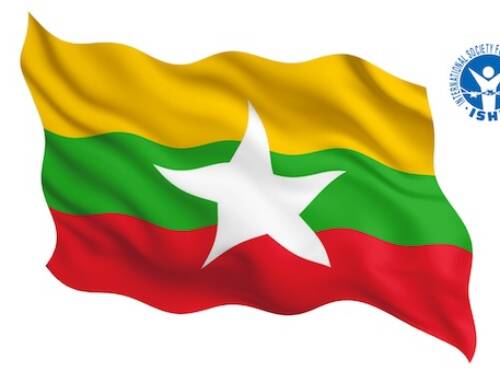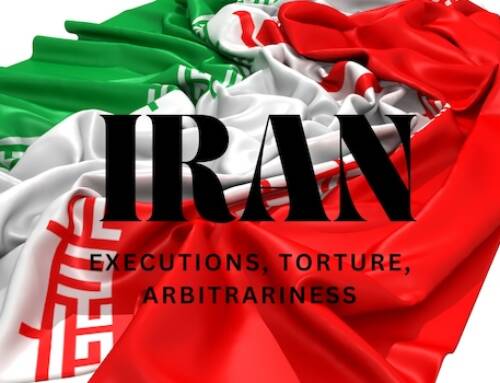NORTH & SOUTH AMERICA


Recent events ratify the systematic violation of human rights in the Great Antillean Island
The 11th of July 2023 marked the second anniversary of what I call the Great National Anti-Communist Uprising, staged on the same date, but in the year 2021. On that memorable day, tens of thousands of Cubans, in more than fifty places in the Republic, spontaneously took to the streets and squares to express their resolute rejection of the communist regime in the country.
The government’s response was brutal. President Miguel Díaz-Canel Bermúdez appeared on National Television to launch his compatriots into a fratricidal struggle: “The order to fight has been given”, were his exact words. And he said this despite the peaceful nature of most of the protests. “Freedom! Down with communism! We are not afraid!” were the predominant slogans among the demonstrators.
This governmental response of manipulation, lies and fierce repression is the same one that remains to this day in the face of any expression of dissent on this island that decades ago was known as the Pearl of the Antilles. Let us briefly look at some of the most recent measures adopted by the Castro regime.
First, we must mention the political prisoners and prisoners of conscience, who number more than a thousand. Most of them are precisely citizens whose only crime was to go out on 11 July 2021 to shout their repudiation of this regime that keeps Cuba in hunger, misery, and despair.
But among them, there are at least two, among the most prominent, who cannot even be accused of that. I am referring to José Daniel Ferrer García and Luis Manuel Otero Alcántara. It is a fact that both knew about the anti-government demonstrations. Both left their homes in Santiago de Cuba and Havana, respectively, to join the protests, but were intercepted along the way.
This means that, in their specific cases, the Castro authorities cannot even falsely claim that they were taking part in any illegal demonstrations! Despite this, both are held in the regime’s appalling prisons, where their rights are systematically violated.
José Daniel Ferrer also remained missing for months in the Cuban Gulag. For this reason, his loved ones demanded a proof of life. The prison authorities finally allowed his wife and children to see him. One is at a loss to determine which was preferable: the lack of knowledge of the prisoner’s actual condition, or the actual realisation of the terrible situation in which he found himself. The latter refers to the lapidary phrase expressed by his wife, Dr. Nelva Ortega Tamayo: “They are killing my husband”.
In addition to the existence of more than a thousand political prisoners and prisoners of conscience, and the extremely difficult situation faced in prison by the aforementioned and others, I would like to close this brief article with a reference to the civic protest that for a decade has been staged in the city of Santa Clara, in the centre of the island, by the former prisoner of conscience Guillermo Fariñas Hernández, winner of the European Parliament’s Sakharov Prize.
After returning to Cuba from a visit to the United States, this prominent opposition activist and psychologist began one of the many hunger and thirst strikes he has staged over the years (the most notable of which was in 2010, which led to the release of the members of the so-called Group of 75, imprisoned since 2003).
Fariñas’ current protest is for the freedom of political prisoners; but it also includes a demand addressed to the European Union: that those free countries of the Old Continent put an end to the Agreement they maintain with the oldest communist dictatorship in the West.
After several days on hunger and thirst strike, Guillermo, at the repeated urging of personalities and friends (including several MEPs), agreed to resume drinking water, switching to an exclusively hunger strike. This decision was very favourable for his life, as it should be noted that there was a significant difference in the attitude of the regime towards his 2010 strike and the current one.
In 2010, under General Raúl Castro, Fariñas’ repeated fainting spells led to his admission to a Santa Cruz hospital. Today, under the formal command of Miguel Díaz-Canel, the authorities have ignored his state of health, and the protester has been forced to maintain his strike in his own home.
The Santa Clara psychologist is right in the part of his protest that is directed against the European Union and its policies. It is not only that the Cuban government openly violates the human rights of its citizens. It is the case that, in the face of the barbaric aggression unleashed against Ukraine by dictator Vladimir Putin, Cuba, to the embarrassment of the generality of its inhabitants, is one of the few countries that has allied itself with the aggressor.





